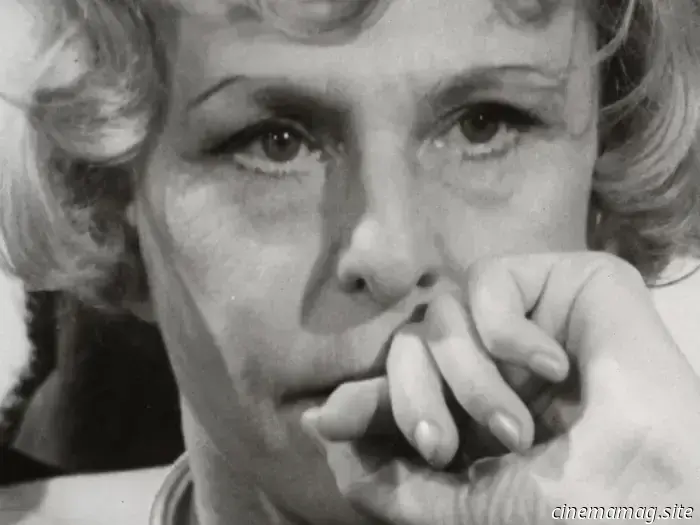
Riefenstahl Review: An Artist's Depiction as a Nazi Collaborator
The human mind's capacity for justification is intriguing. Riefenstahl, a documentary by Andres Veiel, delves into how the filmmaker rationalized her associations with the Nazi Party in Germany during their reign. Leni Riefenstahl, who lived to be 101 and passed away in 2003, consistently rejected claims that she knew about the atrocities occurring around her. "I never saw any atrocities happening," she asserted in a 1976 interview, despite being confronted with accounts of witnessing the murder of 22 Jews, a denial she maintains vehemently. Throughout the documentary, she dismisses numerous allegations, while other evidence implies she was more cognizant of the surrounding evil than she openly admitted. To what extent was Leni Riefenstahl aware while collaborating closely with Hitler and his associates?
This question is not only thought-provoking but has always sparked debate. It is undeniable that she possessed a certain genius; her work Olympia showcases some of the most breathtaking imagery ever captured on film. Some footage in the documentary indicates she believed herself to be exceptionally talented. There may be no artist more emblematic of the divide—if it exists—between art and politics. George Orwell said in his essay "Why I Write," "The opinion that art should have nothing to do with politics is itself a political attitude." The renowned Toni Morrison expressed in a 2008 interview with Poets & Writers Magazine: "All that art-for-art’s-sake stuff is nonsense. […] Are you really suggesting that Shakespeare and Aeschylus weren’t addressing themes of power? All great art is political!" Paul Auster added a layer of complexity in discussing novels (in a 2017 interview with Maclean’s): "Art is not politics. The beauty of the novel lies in its democratic nature, as it views individuals as deserving of analysis. That, by itself, is a form of political action."
With exclusive access to Riefenstahl’s estate, Veiel and his editing team (Stephan Krumbiegel, Olaf Voigtländer, and Alfredo Castro, who all do exceptional work) create an intriguing narrative of Riefenstahl’s life, starting with her early partnership with director Arnold Fanck (she starred in his film The Holy Mountain in 1926) and moving through to her captivating 1932 film The Blue Light, which she directed and starred in, and later her photography project with the Nuba people of Sudan. The Blue Light received acclaim, even from members of the National Socialist German Workers’ Party. Soon after, her film Triumph of the Will documented the 1934 Nazi rally in Nuremberg, highlighting the growing popularity of the party. She characterized the film as propaganda focused on workers' unity, a statement that anyone familiar with the film knows is clearly misleading. Veiel includes clips to counter her dishonesty.
The film predominantly features Riefenstahl’s own voice from various recordings. She often appears charming and intelligent, which makes her lengthy denials and fabrications all the more unsettling. In her perception, she was a victim—of a political party that utilized her without disclosing their true crimes (and of the nation at large, according to her). She also considered herself a victim of the backlash and criticism she faced throughout her life. The documentary presents compelling footage from a contentious talk show appearance where both the host and another guest confront her candidly about her complicity. She maintains her position, arguing that if Churchill or another leader had requested her film services, she would have acted similarly. Following her impassioned self-defense, the audience applauds, creating a rather disquieting atmosphere.
The timing of Veiel’s documentary release is notable. As the United States becomes increasingly un-democratic, with more authority concentrated in a singular individual whose commitment to the rule of law is minimal, this documentary stands as a political commentary. We witness the unfolding events around us, recognizing their wrongness. Will we succumb to rationalizing our inaction? Or will we choose a different path?
Riefenstahl will be released in theaters on September 5.

Other articles
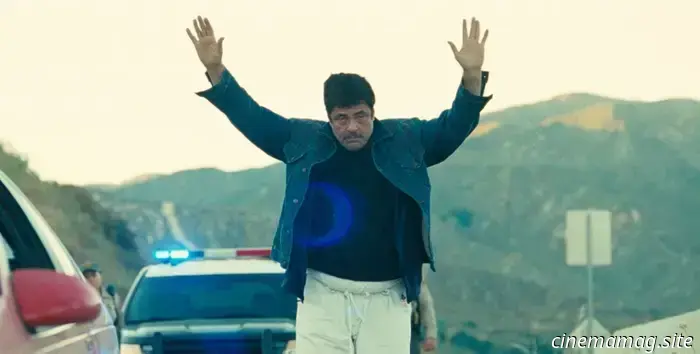 13 Movies to Watch in September
By reviewing our 50-title fall movie preview, you shouldn't encounter many unexpected choices when deciding what to watch in September. However, with our most highly anticipated film of the year releasing this month, alongside some early fall treasures, there is plenty to be excited about. 13. Plainclothes (Carmen Emmi; Sept. 19) is set to premiere earlier this month.
13 Movies to Watch in September
By reviewing our 50-title fall movie preview, you shouldn't encounter many unexpected choices when deciding what to watch in September. However, with our most highly anticipated film of the year releasing this month, alongside some early fall treasures, there is plenty to be excited about. 13. Plainclothes (Carmen Emmi; Sept. 19) is set to premiere earlier this month.
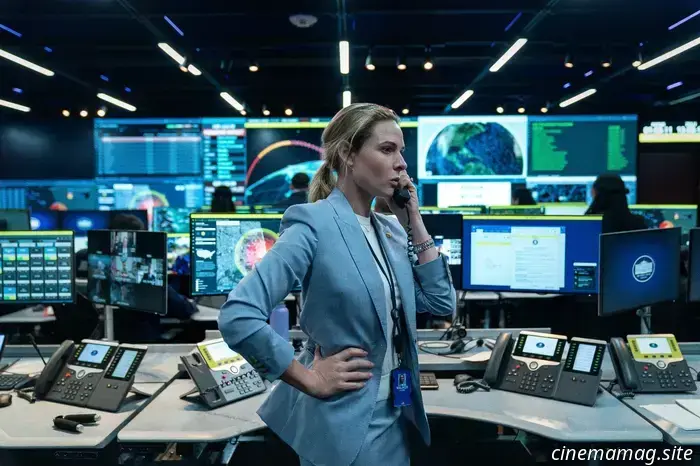 Venice Review: Kathryn Bigelow's A House of Dynamite is a Relentlessly Effective Thriller
If human life were to effectively cease tomorrow, would it be a result of a) the rash actions of a military leader, b) the poor accuracy of even the most advanced interceptor missiles, or c) a combination of various dire situations? These are among the possibilities being evaluated in A House.
Venice Review: Kathryn Bigelow's A House of Dynamite is a Relentlessly Effective Thriller
If human life were to effectively cease tomorrow, would it be a result of a) the rash actions of a military leader, b) the poor accuracy of even the most advanced interceptor missiles, or c) a combination of various dire situations? These are among the possibilities being evaluated in A House.
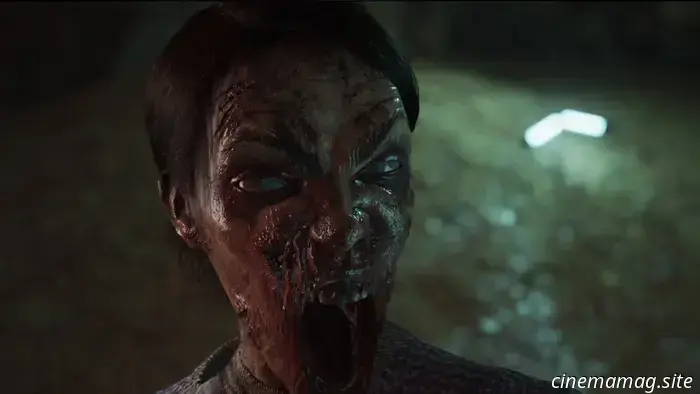 The gameplay trailer for the zombie survival horror game Outbreak Zero has been released.
Indie developer Next Generation Gaming has unveiled a new trailer (see below) for their forthcoming survival horror title, Outbreak Zero. Set to launch on December 12th, the game will be available on Steam and the Epic Games Store and will feature a terrifying narrative complemented by eerie visuals and intense combat. Outbreak Zero transports players to a city that is […]
The gameplay trailer for the zombie survival horror game Outbreak Zero has been released.
Indie developer Next Generation Gaming has unveiled a new trailer (see below) for their forthcoming survival horror title, Outbreak Zero. Set to launch on December 12th, the game will be available on Steam and the Epic Games Store and will feature a terrifying narrative complemented by eerie visuals and intense combat. Outbreak Zero transports players to a city that is […]
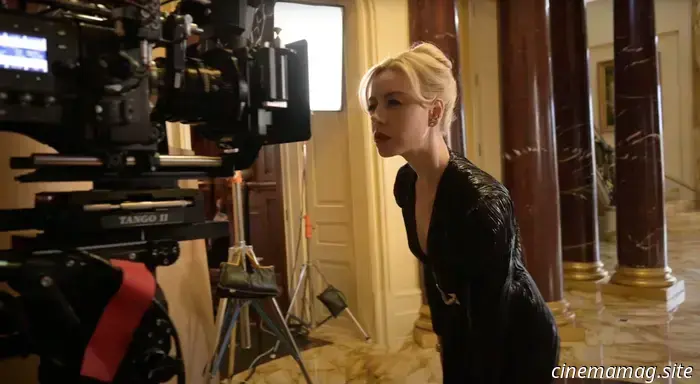 The trailer for Mike Figgis' MEGADOC delves into the turbulent development of Francis Ford Coppola's Megalopolis.
Few recent films satisfy a curiosity quite like MEGADOC. Regardless of the cinematic merit of Mike Figgis' documentary––considering the poorly designed title cards with noticeable typos, the lackluster music, perhaps insufficient engagement with interviewee George Lucas while omitting Spike Lee entirely, and so on––providing that increasingly rare behind-the-scenes glimpse into one of the more intriguing films is commendable.
The trailer for Mike Figgis' MEGADOC delves into the turbulent development of Francis Ford Coppola's Megalopolis.
Few recent films satisfy a curiosity quite like MEGADOC. Regardless of the cinematic merit of Mike Figgis' documentary––considering the poorly designed title cards with noticeable typos, the lackluster music, perhaps insufficient engagement with interviewee George Lucas while omitting Spike Lee entirely, and so on––providing that increasingly rare behind-the-scenes glimpse into one of the more intriguing films is commendable.
Riefenstahl Review: An Artist's Depiction as a Nazi Collaborator
It is intriguing what the human mind can rationalize. "Riefenstahl," a documentary by Andres Veiel, delves into the justifications that filmmaker Leni Riefenstahl used to account for her partnerships with the Nazi Party in Germany while they were in power. She maintained these justifications until her death at the age of 101.
